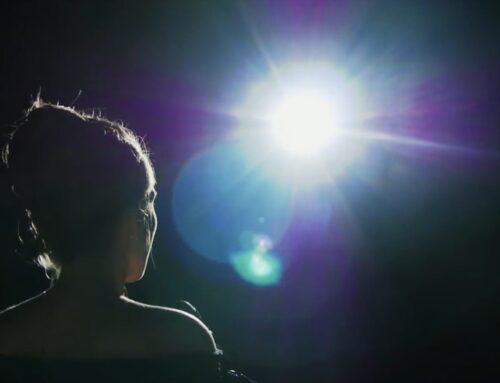How Criticism Impacts Singers’ Confidence
By Margaret Lampasi
Your voice is a very personal part of who you are. For that reason it is no surprise that harsh criticism can shake your confidence in your singing or your voice. This is not only true for beginners who are particularly vulnerable. Even experienced, professional singers can sometimes suffer from a lack of self-assurance or confidence in their voices when they receive harsh criticism of their singing.
Let us first differentiate constructive and supportive feedback from destructive or harsh criticism. Obviously constructive feedback supports growth while destructive or unkind feedback hinders or stifles it.
A hallmark of supportive feedback is: always coming from a place of kind regard or at least respect for the person. Unfortunately, that’s usually not the case in nasty or destructive criticism.
Destructive criticism has a degrading or minimizing, unkind energy to it, which tends to make a person feel awful.
The thing about harmful criticism from the outside, it can bring to life another critic, one that resides in the person and is often called the inner critic. Unfortunately, this inner critic can bring about more havoc, eroding their confidence for singing.
Three Harmful Types of Criticism Singers Should Lookout for…
1) Harsh Criticism From the Outside
When it comes from peers who are not very experienced or professional singers, it is often borne of ignorance. And it’s often easy for someone who is NOT a singer to dispense out unkind criticism. Unfortunately, it can be potentially destructive to a budding singer’s confidence. The beginner singer can be especially vulnerable to excessive criticism.
I had a student once who initially came to me because after his karaoke performance his friend said, “maybe you just don’t have what it takes.” It turns out, there was nothing at all wrong with this college student’s voice. He just needed some supportive vocal training and it wasn’t long before he was acing karaoke and getting enthusiastic applause after his performances.
Solution: Frame it for yourself, if this person is not an expert in singing, then they don’t really have authority to give you accurate or reliable feedback.
And even if the person giving the criticism is an expert professional, and they’re acting as if it (the harsh criticism) is “for your own good”, be wary of their intent. Harshness is never warranted. If there seems to be a small kernel of truth in their input, keep that but then be sure to leave out the destructive elements.
If you’re feeling awful somehow about your singing as a result of someone saying something to you, even a well-meaning friend, then you need to doubt the full veracity of those words. Don’t give them any power over you. That is, they are not gospel truth.
Instead, find more supportive people or mentors to give you truly helpful yet kind, constructive feedback.
Good, constructive feedback is either neutral or supportive in nature. It builds your awareness, confidence and patience with yourself.

2) Your Own Negative Self-Talk
Negative self-talk are the words your inner critic speaks to you. Read my blog post on overcoming negative self-talk in singing & find more inspiration there.
The Inner Critic or Inner Judge can be the worst bugaboo of all for any singer. First, I want to make a positive statement that most people have more singing potential in them than they realize. Habitual negative self-talk makes it difficult for the student to see all the potential that they DO have.
One student of mine suffered from a strong inner critic. He had the erroneous idea that not much good could come out of his mouth for singing, talking down to himself as others in his past had. Meanwhile, the sounds that came out of his mouth were gorgeous, a rich and booming bass voice. Such natural and raw talent he had that it gave me chills. I encouraged him and gave him permission to explore and use his voice in new ways. Eventually he basked in the encouragement and positive feedback, finally putting himself out there singing at church and open mics with more self-belief.
Solution: Silencing the negative self-talk largely happens through substituting or inserting positive feedback and affirmations where there once was negativity.
Remember: the new, positive messages to my above student allowed his beautiful voice to come out more fully, both for his own enjoyment and that of others who heard him. Also, working to improve your singing through practice –and celebrating even the smallest of wins–supports your growing confidence.

3) Comparison to Others (or aka the comparison disease!)
This is related to negative self-talk and the inner critic.
Our culture tends to be competitive. In the realm of singing this is an unfortunate situation. I believe singing is to put more beauty, meaning and self-expression in the world. Everyone has something to give to that end.
Constantly comparing oneself to other singers, especially more skilled ones, can erode your confidence and create heavy feelings of inadequacy.
If you’re comparing yourself to others, you are likely despairing about yourself.
Solution: Remember this little meme on the truth of what comparison does to you:
COMPARE = DESPAIR. Just don’t do it! You are worth your own self-belief and compassion.
Comparison robs you of the joy of discovering YOUR unique voice– and naturally developing your skills as well as building confidence. You and your voice are worth it!
Your voice is a unique expression of YOU. Treat it with utmost respect, care and kindness, just as you would a good friend.
Confidence is Achieved In a Safe Learning Environment
Just to clarify, criticism isn’t a big ugly word in and of itself. Perhaps “feedback” is a kinder sounding word, but nonetheless when a teacher respectfully engages in giving criticism that is constructive, it supports the progress of their students. And it is through more progress and skills development that a student becomes more naturally confident.
Natural confidence = the strength of a basic knowing of oneself and one’s abilities–so much so that if you encounter what may be harsh criticism from the outside, it will more easily roll off your back and not be so upsetting. More regular and mindful practice as well as training all help with growing that inner strength.
Essentials to Keep in Your Singing Soul’s Medicine Cabinet When Your Confidence is Lagging:
- Maintain a growth mindset. A lot more is possible for you and your voice than you think. Everyone has more potential to be a better singer than they think.
- Cultivate self-compassion and be gentle with yourself in the learning process. Be patient and understanding as you would with a friend.
- Let go of harsh criticism, judgment and comparisons from the outside AND inside. This allows you to gradually increase your confidence and skills in singing.
- Steer clear of professionals who, even though they’re experts, speak to you in harsh, shaming or judgmental ways.
- Surround yourself with positive people and supportive mentors who uplift and encourage you to become the best singer you can be.
- Borrow the confidence of a safe and trusted singing teacher, one who sees you and supports the unfolding of the potential of your own unique voice.
Remember, singing should be joyful and stress-relieving.
Keep singing from your heart!







